#election 1896
Explore tagged Tumblr posts
Text
William Jennings Bryan Saves America!

If anyone could tell, I'm a big fan of alt-hist and a big modern history nerd. So, that means I love simulators! This one, New Campaign Trail, lets you run through different campaign scenarios. I've always found figures like William Jennings Bryan to by fascinating in their continuous attempts to get elected, so I gave it a run (on easy mode admittedly...) and I swept the nation on Free Silver, a moderate approach to tariffs, and a pro-labor campaign.
0 notes
Photo

1896/1900 US Presidential Election Swing by County
62 notes
·
View notes
Note
I think Bryan was actually a Democratic nominee, not Republican.
Yes, thanks for catching that so I could fix it! William Jennings Bryan was indeed the Democratic Presidential nominee in 1896, 1900, and 1908 and lost all three races (twice to William McKinley and the third time to William Howard Taft). Bryan's brother, Charles W. Bryan -- who was Governor of Nebraska at the time -- was also nominated by the Democrats as their 1924 Vice Presidential nominee on the ticket with John W. Davis. (He also lost.)
#Presidential Campaigns#History#Politics#Presidential Politics#Presidential Elections#Presidential nominees#William Jennings Bryan#1896 Election#1900 Election#1908 Election#Charles W. Bryan#1924 Election#Democratic Party#Democratic Presidential nominees
6 notes
·
View notes
Text
Maybe I'm going into conspiracy territory but fuck it what have i got to lose now?
My real question is. What the hell happened? In 2020 Biden had 81 million votes to Trump's 74 million. This year Kamala's sitting at 66 million to Trump's 71 million.
So what the hell happened to the record number of single day voter registrations a while back? What happened to Kamala's record number of small donations? Why are strongly historically blue counties swinging so far the other way? (Starr County in Texas was blue every election since fucking 1896 but is red this year). I know the internet doesn't reflect real life but it really felt like the energy for Harris was way higher than for Hillary or Biden. So where did that go?
Were there really 15 million people who voted for Biden that decided they're single-issue-Palestine voters? That seems rather high.
I can't help but feel like something is fishy here. Trump established that its totally normal to launch investigations and sue a bunch of places when losing maybe Harris should try some of that idk
#also im just sayin if she figures out a way to actually steal the election id look the other way#do what you need to sis i dont want to deal with more trump pls pls#srsly tho what the hell happened here#us politics#us elections#politics#kamala harris#donald trump
297 notes
·
View notes
Text
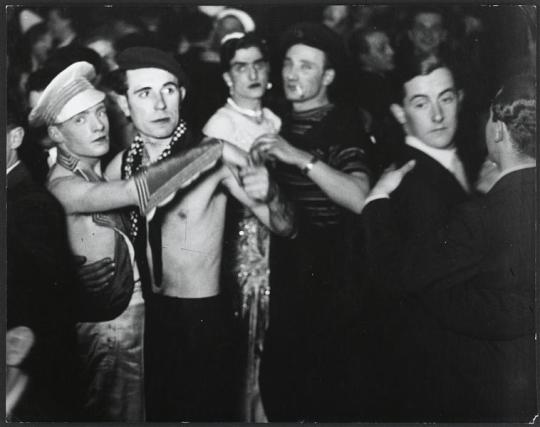
In the immense social upheaval following World War I, Berlin emerged as the global hub for gay life and gay art. In 1921, Berlin was home to 40 documented meeting places for gay people. By 1925, that number had jumped to 80.
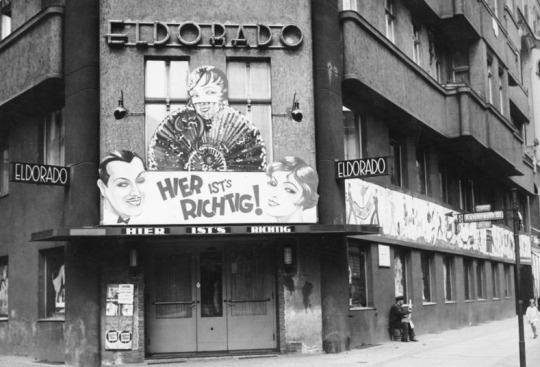
Cheif among these hotspots was the cabaret Eldorado, whose drag pageants and performances were immortalized by the likes of artists such as Otto Dix. In 2023, Netflix released a documentary about the club, Eldorado: Everything the Nazis Hate.
youtube
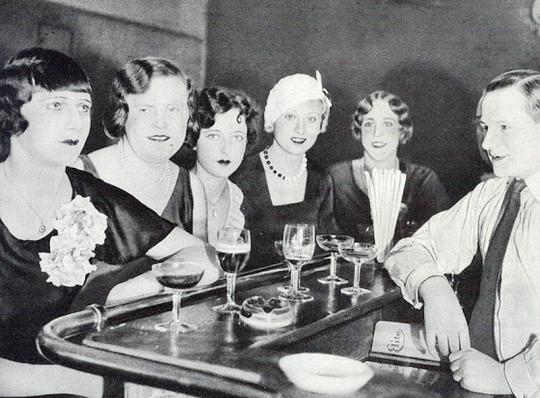
At the center of the movement for gay rights was Dr. Magnus Hirschfeld and his Institut für Sexualwissenschaft.
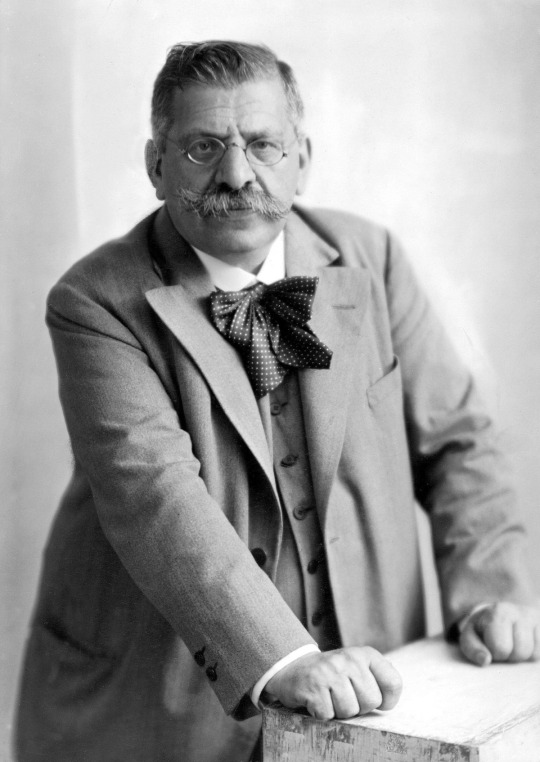
Ins 1896 Hirschfeld was operating as a regular physician, when he received a note from a soldier who was engaged to be married. The soldier was suicidally depressed because he could not get over his attraction to men, and was desperate to be cured of it. Being gay himself, Hirschfeld related tremendously to the soldier, and was spurred begin studying homosexuality in a scientific manner.
He was led to the conclusion that homosexuality was a natural occurrence that happened the world over. More importantly, he argued that homosexuality was not immoral and that homosexuals should be free to live and love as they pleased.
Hirschfeld was also the first scientist to recognize and study what we'd call transgenderism today, and was the person who coined the term "transvestite."
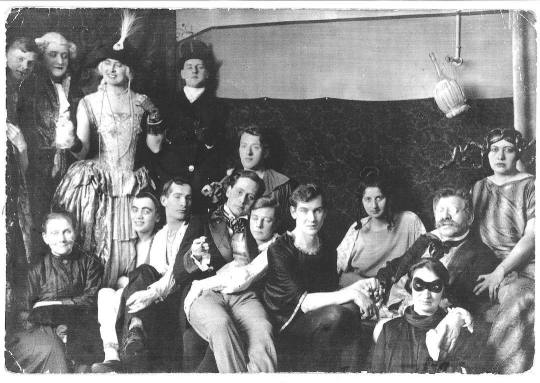
(Dr. Magnus Hirschfeld, 2nd from right)
Das Institut acted as both a medical clinic and a center of education. Members of the public could come and be informed on the mechanics of how sex worked as well as receiving non-judgemental medical care for STIs and other sexual conditions. Women could receive information about safe abortion. It was also one of the first places where trans people could come and receive hormone treatment and information about gender-reassignment surgery.
Then, in 1933, with the appointment of Adolf Hitler as chancellor, everything changed.
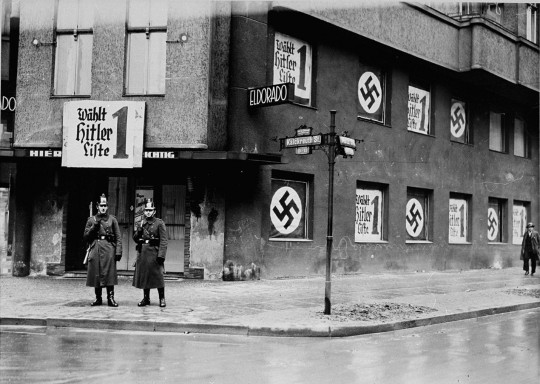
Queer lives were officially deemed not worth living, and public queer places became the chief target of Nazi persecution. The voluminous libraries of Das Institut were raided and then burned, destroying so much early queer history and science that was irreplaceable.
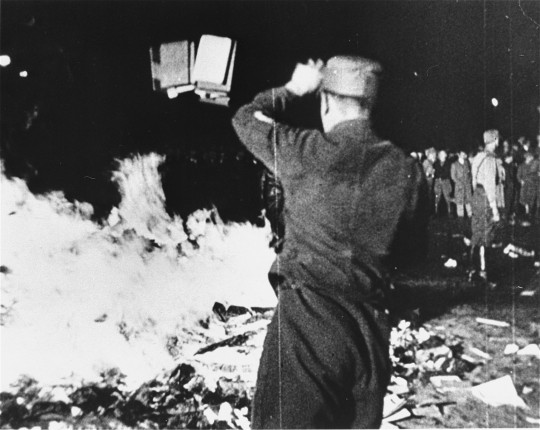
Dr. Hirschfeld managed to escape Germany and died in France in 1935. Queer people who were not lucky enough to leave to the country were arrested and sent to die in concentration camps.
The lessons of Weimar Berlin are painfully pertinent today. Progress can be destroyed faster than it gets made. Rights are not guaranteed and must always be fought for. The past cannot be allowed to happen again.
By which I mean, for the love of all that is holy, if you want to continue to have any rights at all, pleasepleaseplease vote for Joe Biden on November 5th. Don't not vote in protest. Don't vote 3rd party. If Donald Trump is re-elected this WILL happen again. Just imagine your favorite local queer hang-out being shut down with "Make America Great Again" signs in the window, and vote to stop it.
866 notes
·
View notes
Text
Gilbert Blythe - A Journey from Liberal to Conservative
What has always confused me when reading Anne of Green Gables and the subsequent books is why Gilbert Blythe went from a liberal 'grit' to a conservative 'tory.' So, I wanted to look into what could have inspired his change in opinions.
So our first mention of Gilbert's politics comes from about halfway through Anne of Green Gables:
"What way do you vote, Matthew?” “Conservative,” said Matthew promptly. To vote Conservative was part of Matthew’s religion. “Then I’m Conservative too,” said Anne decidedly. “I’m glad because Gil—because some of the boys in school are Grits.
Doing some quick math (and using the timeline that matches up with the 1896 election), we will find this statement was made around 1880, with Anne being about 12 and Gilbert 14. This puts a damper on my wondering because if Gilbert was a Liberal at age 14, he probably only was because his parents were, and changing political views is not uncommon as one grows up. But I will continue my investigation!
So when did things change?
Well, it happened most definitely before 1896 when in Anne's House of Dreams:
"The Island, as well as all Canada, was in the throes of a campaign proceeding a general election. Gilbert, who was an ardent Conservative, found himself caught in the vortex, being much in demand for speechmaking at the various county rallies."
(why we know it is 1896, and why the timeline is inconsistent in the series I recommend this post.)
So Gilbert is not only a conservative. By now, we know he is a well-known conservative in the area! Obviously, his political leanings changed before this point.
Backtrack to the 1891 Election: The main issue of the election was the idea of tariffs or free trade. The incumbent prime minister John Macdonald, a Conservative, was running on his National Policy (more on that soon), which had a lot to do with protective tariffs while the Liberals supported free trade with the United States. While I do think Gilbert's change to being a Conservative has to do with the National Policy I believe it probably would have occurred before this because the Conservative party had a rough year in 1891 and was thrown into chaos so it would be odd for Gilbert to become one at this time.
The National Policy, implemented by John Macdonald in 1879 was extremely popular. It included policies that would strengthen Canadian businesses against the very popular American ones, creating high tariffs. It even completed the national railway!
Overall, I expect that Gilbert became a Conservative during his university years (shocking, I know) because this perfectly aligns with the National Policy's success.
Of course, this is all speculation, and my answer was quite underwhelming. Even for myself, I did have fun researching what exactly drew people to be a Conservative during this time.
So for all you folks disappointed about Gilbert and Anne being conservatives this is a quick snapshot of what that meant during the later 19th century in Canada!
#anne of green gables#aogg#lm montgomery#anne shirley#gilbert blythe#liberal#conservative#canadian politics#of the 19th century#well now i know#random information#enjoy
84 notes
·
View notes
Text
Rilla of Ingleside created a new timeline...
Anne's House of Dreams mentioned a historical event - a federal election: “Mistress Blythe, the Liberals are in with a sweeping majority. After eighteen years of Tory mismanagement this down-trodden country is going to have a chance at last.” (AHoD).
From Wikipedia: "The 1896 Canadian federal election was held on June 23, 1896, to elect members of the House of Commons of Canada of the 8th Parliament of Canada. Though the Conservative Party, led by Prime Minister Charles Tupper, won a plurality of the popular vote, the Liberal Party, led by Wilfrid Laurier, won the majority of seats to form the next government. The election ended 18 years of Conservative rule."
It wouldn't be surprsing, but... it was also the year in which Jem Blythe was born! The election took place few weeks after his birth: "When Anne came downstairs again, the Island, as well as all Canada, was in the throes of a campaign preceding a general election." (AHoD).
So... according to this timeline, Walter was born a year later (1897), then the twins (1899), Shirley (1901) and Rilla (1903).
The point is... at the outbreak of the war, Walter would have been only 17 years old, the twins 15, Shirley 13, Rilla 11...
Shirley would have been too young to participate in the war and Walter would have barely turned nineteen at the time of the Battle of Flers-Courcelette in September of 1916...
Someone in one of my older posts noticed that puff sleeves fashion suggested that Anne of Green Gables took place in 1880s rather than 1870s... so it would make sense!
I wonder why Montgomery chose Rilla as her teenage heroine (according to the original chronology, Rilla should have been only 11 years old), while there were 15-year-old twins...
Can you imagine Nan and Di as the main characters of the war book? Two young girls at Queen's, trying to come to terms with rapidly changing world? Rilla and Shirley at Ingleside, growing closer in such trying times? Teenage boys - Jem and Walter - who had to choose if they wanted to sacrifice their life at even younger age - at eighteen? Walter, never reaching the age of twenty (or maybe - dare I hope - coming back home safely)? Anne and Gilbert in their 40s, trying to collect all the broken pieces that was once their family?
It would have been equally good, in my opinion. I wonder... why Montgomery felt she had to suddenly change a whole chronology?
Side note: of course, I love Rilla of Ingleside. But I am just curious... (Nan and Di of Ingleside would be a good book, too!).
@diario-de-gilbert-blythe @gogandmagog @pinkenamelheart @valancystirling48
105 notes
·
View notes
Text
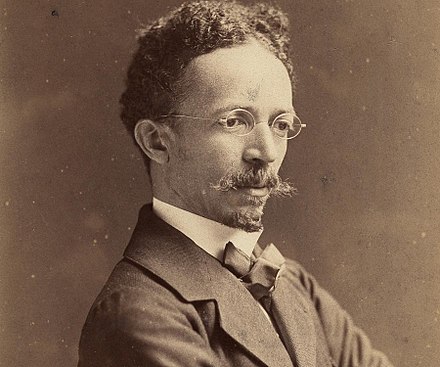
Henry Ossawa Tanner (June 21, 1859 – May 25, 1937) was an American artist who spent much of his career in France. He became the first African-American painter to gain international acclaim.[1] Tanner moved to Paris, France, in 1891 to study at the Académie Julian and gained acclaim in French artistic circles. His painting Daniel in the Lions' Den (1895, location unknown) was accepted into the 1896 Salon, the official art exhibition of the Académie des Beaux-Arts in Paris. Tanner's Resurrection of Lazarus (1896, Musée d'Orsay, Paris) was purchased by the French government after winning the third-place medal at the 1897 Salon. In 1923, the French government elected Tanner chevalier of the Legion of Honor.
#black history#black tumblr#black literature#black excellence#black community#american artist#painter
151 notes
·
View notes
Note
A challenge: which unimportant US presidential election would you go back in time to change the outcome of? You can't name any of the top 20 genuinely history-defining elections; it has to be a relatively forgotten one.
It's sort of a contradiction, right? Like by definition elections that have outcomes interesting enough to change are excluded. Some elections which might feel like trivia to most people, like the 1876 one that ended Reconstruction, would probably still be rated as pretty highly consequential by historians. Elections like the 2000 election, which didn't seem like it would be extremely consequential at the time, are now widely agreed to be hugely consequential. And it's hard to know how very recent elections, which are important to us, might go down in history.
I am also assuming I only get to pick between the actual major-party nominees--that I don't get to fiddle with the nomination process at all, and very minor candidates don't have a shot. So depending on how you define the "top 20 most consequential elections" I might pick (besides 2000 and 1876)
1912, because Woodrow Wilson was a phenomenally racist son of a bitch (but this might be too close to World War I to not be "history-defining"), and a third-party win by Roosevelt would be fun.
1920, because Warren G. Harding was just a really bad president
1900 or 1896, because William Jennings Bryan winning would be a fun alternate history scenario
1824, because Andrew Jackson was also a huge asshole
1988, because I like Dukakis better, and to reduce the political weight of the Bush family name
1984, because I dislike Reagan, and it would be a huge upset (fun!)
1980, because again fuck Reagan, and I like Jimmy Carter (even though objectively he was not a terribly effective president)
1968, because Richard Nixon was kind of a disaster for how we think about the American presidency
1952, because Adlai Stevenson seems fun, and somewhat less of a paranoid anti-communist that most Republicans (including Eisenhower) at the time.
26 notes
·
View notes
Text
His Last Bow
Originally titled in full "His Last Bow. The War Service of Sherlock Holmes" and later "His Last Bow: An Epilogue of Sherlock Holmes", this was originally published in 1917.
It is the final story in His Last Bow, the final short story in the canon covered by Letters from Watson and agreed by all the key chronologists to be the final canon appearance of Holmes and Watson.
Sir Arthur Conan Doyle had openly supported British entry into the First World War in 1914.
The story came about after a visit to the Western Front in 1916; asked by a French general what Holmes was doing, Doyle had responded that he was too old to serve. He then decided to write this story as a means of boosting morale.
To put it mildly, the British public had gone a bit spy-crazy in the lead up to the war; fearing "Teutons serving them croutons" i.e. Germans living in the UK acting as intelligence agents for the Kaiser.
The Riddle of the Sands is one such work of popular literature on this theme, which is the subject of Letters from Carruthers coming in September.
There was also the fantastical works of William Le Queux, who started off with the French and Russians as his enemies before switching to the Germans; he also had his works serialised in the Daily Mail, a British middle-market tabloid that was founded in 1896 and has been happily engaging in right-wing sensationalism since to the point Wikipedia has banned them as a source. Le Queux for his part believed the Germans were out to get him for exposing their spy networks - he hadn't, they weren't and the Metropolitan Police refused him protection.
The Benz company had produced the first practical motor car in 1885; they of course later merged with Daimler to become Mercedez-Benz. I cannot find a 100hp example of their vehicles.
The German Chancellor in 1914, Theobald von Bethmann Hollweg, was a moderate, who reluctantly went along with many German policies like unrestricted submarine warfare and tried to initiate peace proposals on a number of occasions in the war before being ousted in 1917.
Flushing is the historical English name for the Dutch port of Vlissingen; it had a ferry connection to Sheerness until 1994.
At the outbreak of war, diplomats on both sides were allowed to return home unmolested, after locking down their embassies and burning anything sensitive they could not take with them.
Britain, France and Prussia had signed a treaty in 1839 guaranteeing the neutrality and independence of Belgium. The German invasion of the country on 3 August gave the UK justification for war and moved a Cabinet divided over the matter to firm unity.
There was a fear of Irish civil war at this point; the Liberal government, reliant on Irish and Labour support for a Commons majority after the two elections of 1910, had passed legislation creating a devolved government for the island, called Home Rule. This was vehemently opposed by Ulster Protestants and both sides were receiving weapons - from Germany in fact - in preparation for a fight as Whitehall tried to arrange a compromise. The Germans in fact believed the British would be distracted by a civil war, but in fact the Home Rule legislation was suspended for the duration and both militias decided to support the war effort. That stopped things... until the more radicial Irish Republic Brotherhood launched the Easter Rising of 1916.
"Window-breaking Furies" refers to the suffragette movement that sort votes for women, some of who engaged in direct action like breaking windows and also planting bombs or arson, although they made sure the latter was done when the buildings were empty to avoid killing anyone. These tactics were as controversial at the time as the tactics of modern-day groups like Just Stop Oil. When the war broke out, the suffragettes stopped their militant actions and supported the war effort; their imprisoned members being released as part of an amnesty.
John Bull is a national personification of the UK, typically a stout middle-aged man in a Union Jack waistcoast, frequently seen in cartoons at this time. He rather fell out of popular use post-war and is rarely seen today, unlike Britannia, who remains a widely used figure.
The Rosyth Dockyard was built from 1909 for refitting Royal Navy ships and submarines; although now privatised, it retains that role and is currently building the five Type 31 frigates.
Carlton Terrace was the home of the German Embassy until 1945; after the war, the property and its contents were sold off at auction. The Federal Republic of Germany set up at Belgrave Square in 1951 and remains there to this day.
Junkers were the land-owning aristocracy of Prussia, who exercised considerable political power up until 1945, at which point most of their holdings ended up in the USSR, Poland or what became East Germany. The land was broken up, usually ending up in collective farms; accused of war crimes, those Junkers who ended up in Soviet hands frequently ended up in NKVD camps or even executed. Their descendants did not get them back after reunification.
The King's English is another name for Received Pronunciation, the "standard" dialect and accent of British English.
Tokay or Tokaji is a sweet wine from the Tokaj regions of Hungary and Slovakia, the designation being protected under EU law in a similar way to Champagne. Imperial Tokay, which was the highest quality Tokaji Essencia, was reserved for the Austrian imperial cellars, often being passed to other European monarchs as gifts. This stuff is still drinkable after over 200 years and even the relatively new stuff isn't cheap.
A naval flotilla would be based at Harwich in both World Wars.
The reference to Holmes being sixty here is where the common estimate of 1854 being his birth year comes from.
Portland is a prison and young offenders' institution in Dorset. Notable past inmates include George Edalji (whose miscarriage of justice was exposed by Doyle), John Babbacombe Lee ("The Man They Couldn't Hang") and the controversial comedian Roy "Chubby" Brown.
Fratton is an area of Portsmouth.
In reality, the Home Section of the Secret Service Bureau, later MI5, had managed to identify the key German agents by monitoring their postal correspondence. The police then rounded them up in August 1914 and once the cross-sea cables were cut, contact with any agents in the UK became close to impossible. Little intelligence of any use came from them in any event; the Germans seem to have not even been aware of the British Expeditionary Force being sent to France, which was hardly a small event. Gustav Steinhauer, head of German naval intelligence's British section, got subjected to a rant about his agency's incompetence from the Kaiser that lasted the better part of two hours.
Twelve German spies would be executed during the war, eleven by firing squad at the Tower of London, which hosted its final execution (also of a spy) in 1941.
Skibbareen is a town in County Cork, now in Ireland.
The final speech by Holmes at the end also featured in the 1942 Basil Rathbone film Sherlock Holmes and the Voice of Terror, based on this story.
So Holmes and Watson drive off into the sunset. What happened to them after that? All we know is that both survived the war and at some point Dr Watson stopped writing about his dear friend. They deserve to have had a long retirement.
I will be doing these for the individual chapters of the novels next year; I have already done ones for the first two chapters of A Study in Scarlet that I will repost.
47 notes
·
View notes
Note
What is your opinion on the SCOTUS ruling about Colorado keeping Trump off the ballot? And follow up question, do you think this will be the most polarizing election of the US?
I believe historians believe that the election of 1896 was the most polarized the United States has ever been. Certainly it'll be as polarizing or even more so than 2000.
It was the right call for SCOTUS. Notably, the decision mentioned that "We conclude that States may disqualify persons holding or attempting to hold state office. But States have no power under the Constitution to enforce Section 3 with respect to federal offices, especially the Presidency." The decision also states that Congress is supposed to have the power to enforce the 14th Amendment. The decision also states that there are lots of practical problems that could happen by causing states to bar candidates from federal office. Five of nine said "Congress has to bar candidates" and three said that a Federal court could do it. One refused to elaborate.
Thanks for the question, Anon.
SomethingLikeALawyer, Hand of the King
21 notes
·
View notes
Text
An American Voice
Since the events of 2020, we have attempted to be more active and reach out to LSU Shreveport campus. This action of outreach is meant to help student, faculty, and campus personnel be aware of a rare and unique resource that is available to them, and any visiting persons to the campus. We have just started our 2024 J.S. Noel Collection Pop-up Exhibits, we aim to highlight a vary small section of the James Smith Noel Collection that might interest various research. This time we focused on one person, Paul Laurence Dunbar.
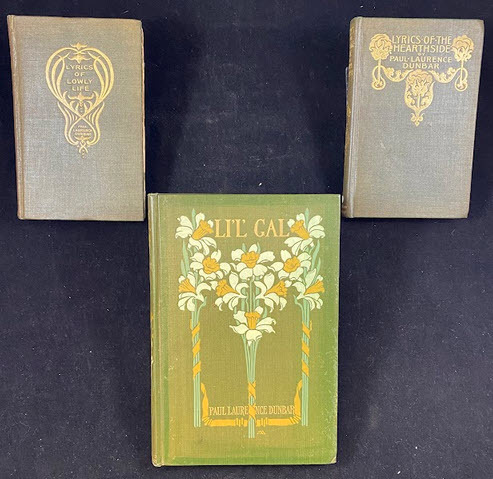
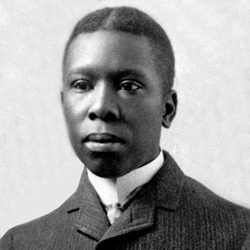
Paul Laurence Dunbar was born in June in 1872 after the United States’ Civil War, his parents were former slaves. He was born and raised in Dayton, Ohio; and started writing from a young age. He wrote is first poem at the age of 6 and read it aloud at the age of nine for a local church congregation, “An Easter Ode.” Dunbar was 16 when he published two poems in the Dayton’s newspaper The Herald; “Our Martyred Soldiers” and “On the River” in 1888. A few years later he would write and edit Dayton’s first weekly African-American newspaper, The Tattler. Paul L. Dunbar worked with two brothers that were his high-school acquaintances to print the paper that lasted six weeks. Those brothers were Wilbur and Orville Wright, the fathers of American aviation. Dunbar was the only African-American student at Central High School in Dayton.
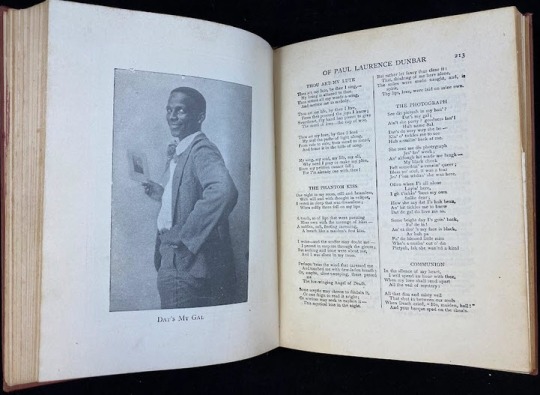
Dunbar’s parents had been slaves in Kentucky, following the emancipation, his mother moved to Ohio, and his father escaped before the Civil War ended. Joshua Dunbar went to Massachusetts and volunteered with the 55th Massachusetts Infantry Regiment. His parents, Matilda and Joshua, were married on Christmas Eve and Paul L. Dunbar arrived six months later. His parents had a troubled union, they separated after the birth on Paul’s sister; but his father would pass away in August in 1885 when Paul was only 13 years old. His mother played a key role in his education, she hoped her son would become a minister. He was elected president of his high school’s literary society which lead to him to become editor of the school newspaper and debate club member.
Paul Laurence Dunbar finished school in 1891 and took a job as an elevator operator to earn money for college where he hoped to study law. Dunbar had continued to write and soon a collection of poems he wanted to publish. He revisited the Wright brothers, but they no longer had a printing faculty and lead his to the United Brethren Publishing House in 1893. Oak and Ivy was soon published and he busied himself selling copies as he operated the elevator. The book contained two sections, Oak with its traditional verse; and Ivy was written in dialect.
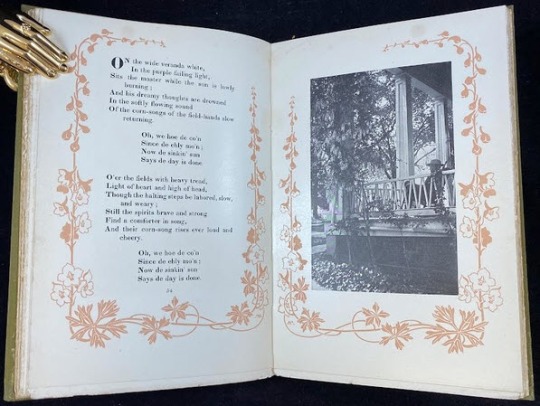
His literary talents were recognized and Attorney Charles A. Thatcher offered to pay for college; however, his interest in law had shift to his writing. Dunbar had been encouraged by the sell of his poetry, and Thatcher helped by arranging for Dunbar to do readings in a nearby city. Psychiatrist Henry A. Tobey also took an interest and assisted in distributing Dunbar’s first book. The two contained to support Dunbar through the publication of his second collection of verse, Major and Minors, in 1896. While he was consistent at publishing, he was a reckless spender resulting in debt. He was a traditional struggling artist as he tried to support himself and his mother.
There was hope in the summer of 1896 when his second book received a positive review in Harper’s Weekly, William Dean Howells brought national attention to his poems; calling them “honest thinking and true feeling” and praising his dialectic poems. There was a growing appreciation for folk culture and black dialect. His popular works were written in the “Negro dialect” that is commonly associated with the antebellum South; though he also wrote in the Midwestern dialect that he grew-up hearing. Dunbar would write in various styles, including conversational English in poetry and novels. He is considered to be the first important African American sonnet writer. His use of the “Black dialect” in writing has been criticized as pan-handling to readers.
Dunbar was a diverse writer, he experimented with poetry, short stories, novels, plays, and a musical. He even ventured beyond the lens of the lives of African Americans and attempted to explore the struggles of a white minister. The Uncalled, Dunbar’s first novel, held similar names and themes of Hawthorne’s The Scarlet Letter and was not well favored. It was with his venture into novel writing that he dared to cross the “color line” with his first novel which focused solely on white society. He continued to try to capture white culture but the critics found them lacking.
He moved past novel writing and began to work with two composers, Dunbar wrote the lyrics for the first musical that would be preformed by an all African-American cast on Broadway; In Dahomey. Beyond his writing career, Dunbar was also active the early civil rights movements happening in 1897. He married after a trip to the United Kingdom in 1898, Alice Ruth Moore was also a poet and teacher from New Orleans. She also published a collection of short stories, and they wrote companion poems together. There was a play in 2001 based on their relationship.
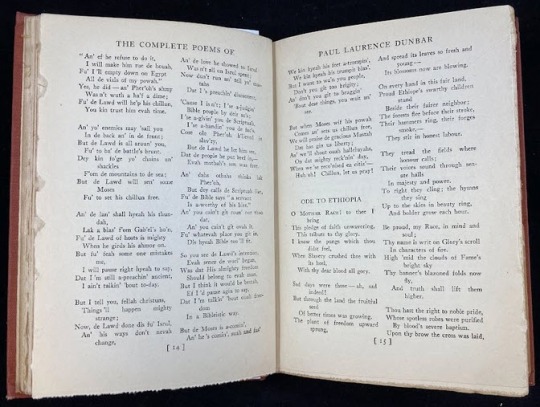
Dunbar had taken a traditional job with the Library of Congress in D.C. and with his wife in tow they moved there. However, with his wife’s urging, he left his job to focus on his writings and his public readings. This also allowed him to attend Howard University for a time. However, he was diagnosed with tuberculosis in 1900 and his doctors suggested that drinking whisky would alleviate the symptoms. They also moved to the cold dry mountains of Colorado for his health. This resulted in trouble in Paul and Alice’s marriage, they separated in 1902 but never formally divorced.
Dunbar returned to his hometown of Dayton, Ohio in 1904 to be with his mother, his health continued to decline and depression consumed his mind. Paul Laurence Dunbar died from tuberculosis at age 33 on February 9, 1906 and was interred in Dayton.
Dunbar did not become one of the forgotten poets of literature, his use of dialect in his poetry allowed for his works to remain relevant and important in poetic criticism. We of the James Smith Noel Collection at LSU Shreveport are proud to retain and maintain a small collection of his works and show case their importance.
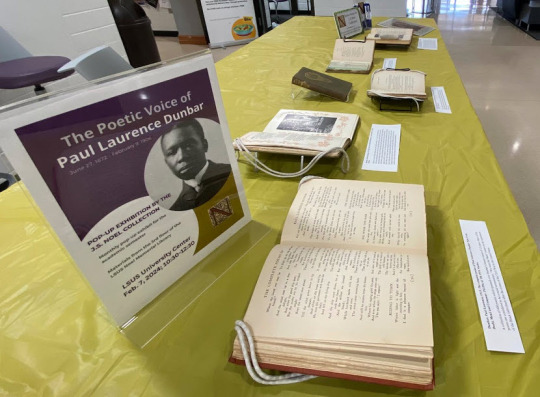
20 notes
·
View notes
Photo

1896 US Presidential Election between William McKinley (R) and William Jennings Bryan (D)
56 notes
·
View notes
Note
How many presidential rematches have there been?
When it comes to the major candidates in a general election, this year's election will be the ninth rematch:
•John Adams vs. Thomas Jefferson: 1796 & 1800
•John Quincy Adams vs. Andrew Jackson: 1824 & 1828 (William H. Crawford and Henry Clay were also candidates in 1824)
•Andrew Jackson vs. Henry Clay: 1824 & 1832 (John Quincy Adams and William H. Crawford were also candidates in 1824; John Floyd and William Wirt were also candidates in 1832)
•Martin Van Buren vs. William Henry Harrison: 1836 & 1840 (Hugh L. White, Daniel Webster, and Willie P. Mangum were also candidates in 1836)
•Grover Cleveland vs. Benjamin Harrison: 1888 & 1892 (James B. Weaver was also a candidate in 1892)
•William McKinley vs. William Jennings Bryan: 1896 & 1900
•Dwight D. Eisenhower vs. Adlai E. Stevenson: 1952 & 1956
•Bill Clinton vs. Ross Perot: 1992 & 1996 (George H.W. Bush was also a candidate in 1992; Bob Dole was also a candidate in 1996)
•Joe Biden vs. Donald Trump: 2020 & 2024
#History#Presidents#Presidential Elections#Presidential Candidates#Presidential Nominees#Presidential Rematches#Elections#Campaigns#Presidential Campaigns#Presidency#Presidential History#Election Rematches#John Adams#President Adams#Thomas Jefferson#President Jefferson#John Quincy Adams#JQA#Andrew Jackson#President Jackson#Henry Clay#William Henry Harrison#President Harrison#Martin Van Buren#President Van Buren#Grover Cleveland#President Cleveland#Benjamin Harrison#William McKinley#President McKinley
26 notes
·
View notes
Text
Trump Ignores the Ruinous History of Tariffs
By Steven R. Weisman; July 26, 2024 Mr. Weisman, a former correspondent and editorial writer for The New York Times, is vice president for publications at the Peterson Institute for International Economics.
Donald Trump’s economic panacea is to impose over-the-top tariffs on all imports, potentially generating enough revenue to eliminate the federal income tax. It is hardly an innovative idea. On the contrary, if enacted, it would return our postmodern economy to that of the Gilded Age of the late 19th century, to economic policies favoring the wealthy over the poor and middle class, when tariffs were the main source of government revenue.
That tariff-dominant era ended with the 16th Amendment to the U.S. Constitution in 1913, which facilitated the adoption of a graduated federal income tax. The income tax, not tariffs, has been the main source of federal revenue ever since, and for good reason.
Tariffs are a tax on imports, the functional equivalent of a sales tax, imposing a proportionately bigger burden on those with modest incomes. As my colleagues at the Peterson Institute for International Economics point out, Mr. Trump’s proposal for a 10 percent tariff on all imports (which totaled $3.1 trillion last year) and a 60 percent tariff on imports from China would cost a typical middle-income household at least $1,700 in increased expenses each year.
Mr. Trump’s radical “all tariff policy” would be self-defeating. It could not possibly fund our modern national security and social welfare needs, because tariff rates would have to rise impossibly high to yield the $2 trillion generated by individual and corporate income taxes. The resulting tariff war, when countries inevitably retaliate, would shrink imports and reduce tariff revenues. And it would discard or marginalize the one tax we have that requires people to pay their fair share.
Following the Revolutionary War, the national government did indeed rely almost entirely on tariffs, as pushed by Treasury Secretary Alexander Hamilton to avoid distasteful excise taxes and encourage the new nation’s infant manufacturing sector. The Civil War quickly proved their inadequacy. To meet the resulting fiscal crisis, Abraham Lincoln persuaded Congress to pass the very first income tax in 1862, essentially a tax on only the very top earners.
That was phased out after the war, returning the United States to its reliance on tariffs and the chaos and class resentment they created. In 1889, Thomas Shearman, a prominent lawyer, wrote a widely disseminated essay titled “The Owners of the United States” that listed families including the Astors, Vanderbilts, Rockefellers and Morgans who presided over untaxed fortunes from railroads, factories, oil refineries, mines and banks.
Overreliance on tariffs helped foment an era of economic shocks. The Panic of 1893, at the time the worst depression in American history, was set off by business and bank failures but aggravated by foreign creditors demanding payment in gold, which only encouraged the U.S. Treasury to push for even higher tariffs to curb imports.
Out of this crisis a new star of the Democratic Party arose, William Jennings Bryan, the “Great Commoner,” who warned against America crucifying itself on a “cross of gold.” He also crusaded against protectionism by holding up clothing and kitchen utensils at his rallies and declaring that tariffs drove up their cost by 50 percent.
Bryan as the Democratic presidential nominee lost the 1896 election to William McKinley, a favorite of Mr. Trump’s (he calls McKinley “the Tariff King”). But Bryan’s ideas lived on. By 1912, a Democratic free-trader and income tax supporter, Woodrow Wilson, the reformist governor of New Jersey, had won the White House.
The income tax was enacted in 1913 in Wilson’s first year in office. Once again, it was war and the urgent need for money, rather than political ideology, that proved the impracticality of relying on tariffs. To fund the mobilization for World War I, Wilson raised the top marginal income tax rate to 77 percent. (Since then, the top rate has fluctuated up and down, rising above 90 percent in World War II and now at 37 percent.)
The Democrats’ defeat after the war brought traditional Republicans with their high-tariffs philosophy back into power and they raised tariffs throughout the 1920s. That culminated in the infamous Smoot-Hawley Tariff Act of 1930, which was enacted in the misplaced belief that tariffs could protect American industries and farmers after the 1929 stock market crash. Instead, they fueled a catastrophic global trade war, strangled commerce, unleashed competitive currency devaluations and intensified a worldwide depression that contributed to the rise of Nazism and worldwide war.
The advent of President Franklin Roosevelt, a free-trader who had served under Wilson as assistant secretary of the Navy, buried the outdated notion of equating tariffs with prosperity. Indeed, his secretary of state, Cordell Hull, a former Tennessee congressman, had helped enact the income tax and lower tariffs a generation earlier and went on to become an eloquent postwar champion of international trade to save the world from another global crisis.
American politics have a way of flipping the policies of parties. In the modern era, beginning with President Ronald Reagan, it was Republicans who led the way to lower trade barriers as a boon to economic growth. Reagan, the conservative, had in the 1960s demonized the progressive federal income tax as a Marxist plot. He believed its confiscatory rates in the 1940s discouraged work, recalling that in Hollywood he stopped making films halfway through the year when the top marginal rate meant he would turn nearly all his additional income over to the government.
But though Reagan negotiated “voluntary” export curbs with Japan, he never advocated higher tariffs. That opposition fell to organized labor and partly to the Democrats, most of whom have opposed trade deals ever since.
Turning away from President Reagan and his successors, Mr. Trump is the first major Republican of the modern era to enact sweeping higher tariff barriers to protect American industries and farmers. In his first term, he instituted several disparate tariffs. They failed to reduce trade deficits and instead incited Europe, Canada and China to retaliate, forcing his administration to pay $23 billion to bail out farmers when China hit back with tariffs on U.S. agriculture products.
For his potential second term, Mr. Trump and his running mate, Senator JD Vance of Ohio, would bring the country back to its protectionist past at a time when large segments of the economy depend on trade and foreign investment, not to mention immigration for high-end tech jobs and low-end jobs in services and agriculture.
A case can be made for selective tariffs to protect national security and sensitive supply chains, and encourage green technologies. The Biden administration has pushed for these steps while keeping Mr. Trump’s tariffs largely in place, incurring many of the same costs. The long historical record demonstrates these are borne not by other countries, as Mr. Trump keeps insisting, but by American consumers and industries.
Tariffs may provide a marginal help to some domestic producers, but only up to a point. Steel manufacturing may gain, but manufacturers that depend on imported steel will lose. Tariffs on solar panels and electric vehicles from China, pushed also by President Biden, may help domestic interests, but they are making it more expensive to adapt to the energy transition.
Economic policies come with trade-offs, and tariffs are no exception. An across-the-board tariff policy would take us not to a prosperous future but to a reactionary past that stopped working in the 19th century, when it nearly bankrupted the government, aggravated class conflict, provoked instability and favored the wealthy over everyone else.
https://www.nytimes.com/2024/07/26/opinion/trump-tariffs-biden-ev.html
10 notes
·
View notes
Text
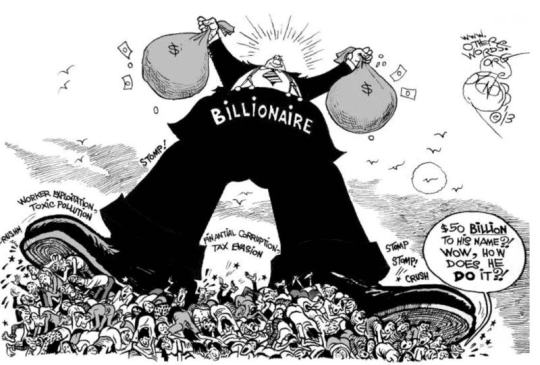
The real choice isn’t “pragmatism” or “idealism.” It’s either allowing these trends to worsen – destroying what’s left of our democracy and turning our economy into even more of a playground for big corporations, Wall Street, and billionaires – or reversing them. And the only pragmatic way of reversing them is through a “political revolution” that mobilizes millions of Americans.
Robert Reich (via azspot)
+
LETTERS FROM AN AMERICAN
HEATHER COX RICHARDSON
MAR 2, 2024
On February 25, 1901, financier J. P. Morgan’s men filed the paperwork to incorporate a new iron and steel trust, and over the weekend, businessmen waited to see what was coming. Five days later, on March 2, the announcement came: J. P. Morgan was overseeing the combination of companies that produced two thirds of the nation’s steel into the United States Steel Corporation. It was capitalized at $1.4 billion, which at the time was almost three times more than the federal government’s annual budget.
While the stock market was abuzz with news of the nation’s first billion-dollar corporation, Vice President–elect Theodore Roosevelt was on his way from New York to Washington, D.C., where he and his family arrived at 5:00 in the evening. The train was an hour behind schedule because the crowds coming to see the upcoming inauguration, scheduled for Monday, March 4, 1901, had slowed travel into Washington.
Two days later, President William McKinley took the oath of office for the second time, and Roosevelt became vice president.
McKinley was a champion of big business and believed the role of government was to support industry, dismissing growing demands from workers, farmers, and entrepreneurs for the government to level the economic playing field that had tilted so extraordinarily toward a few industry leaders. McKinley had won the hard-fought election of 1896 handily, but by 1900, Republicans were so concerned about the growing demand for reform that party leaders put Roosevelt, who had won a reputation for standing up to business interests, on the ticket, at least in part because they hoped to silence him there.
Roosevelt hoped he could promote reform from the vice presidency, but he quickly discovered that he couldn’t accomplish much of anything. His only official duty was to preside over the Senate, which would not convene until December. He was so bored he asked the chief justice of the Supreme Court if it would be unseemly for him to enroll in law school to finish his degree. (Horrified, the justice offered to supervise Roosevelt’s studies himself.)
But then, in September, an unemployed steelworker assassinated McKinley, and Roosevelt became president. “I told McKinley it was a mistake to nominate that wild man at Philadelphia,” one of McKinley’s aides said. “I told him what would happen if he should die. Now look. That damned cowboy is president of the United States.”
Two months later, on November 13, J. P. Morgan and railroad magnates brought together the nation’s main railroad interests, which had been warring with each other, into a new conglomerate called the Northern Securities Company. Even the staunchly big business Chicago Tribune was taken aback: “Never have interests so enormous been brought under one management,” its editor wrote.
Midwestern governors, whose constituents depended on the railroads to get their crops to market, suggested that their legislatures would find a way to prohibit such a powerful combination. Northern Securities Company officials retorted that they would simply keep all business transactions and operations secret. When Roosevelt gave his first message to Congress in December, industrialists watched to see what the “damned cowboy” would say about their power over the government.
They were relieved. Roosevelt said the government should start cleaning up factories and limiting the working hours of women and children, and that it should reserve natural resources for everyone rather than allow them to be exploited by greedy businessmen.
But Roosevelt did not oppose the new huge combinations. He simply wanted the government to supervise and control corporate combinations, preventing criminality in the business world as it did in the streets. He asked businessmen only for transparency. Once the government actually knew what businesses were up to, he said, it could consider regulation or taxation to protect the public interest.
Senators and businessmen who had worried that the cowboy president would slash at the trusts breathed a sigh of relief that all he wanted was “transparency.” According to the Chicago Tribune, the “grave and reverend and somewhat plutocratic Senators immediately admitted in the most delighted fashion that the young and supposedly impetuous President had discussed the trust question with rare discrimination.”
But they were wrong to think Roosevelt did not intend to reduce the power of big business. In early January 1902, Minnesota sued to stop the Northern Securities Company from organizing on the grounds that such a combination violated Minnesota law. While the Supreme Court dithered over whether or not it could rule on the case, the Roosevelt administration put the federal government out in front of the issue. In February, Roosevelt’s attorney general told newspapers that the administration believed the formation of the Northern Securities Company violated the 1890 Sherman Antitrust Act and that he would be filing a suit to keep it from organizing.
Businessmen were aghast, not only because Roosevelt was going after a business combination but also because he had acted without consulting Wall Street. When J. P. Morgan complained that he had not been informed, Roosevelt coolly told him that that was the whole point. “If we have done anything wrong,” said the astonished Morgan, “send your man [the attorney general] to my man [one of his lawyers] and they can fix it up.” The president declined. “We don’t want to fix it up,” explained the attorney general. “We want to stop it.”
“Criticism of President Roosevelt’s action was heard on every side,” reported the Boston Globe. “Some of the principal financiers said he had dealt a serious blow to the financial securities of the country.” For his part, Roosevelt was unconcerned by the criticism. “If the law has not been violated,” he announced, “no harm can come from the proposed legal action.”
In late February, the Supreme Court decided it would not hear the Minnesota case; on March 10, the United States sued to stop the organization of the Northern Securities Company.
In August 1902, Roosevelt toured New England and the Midwest to rally support for his attack on the Northern Securities Company. He told audiences that he was not trying to destroy corporations but rather wanted to make them act in the public interest. He demanded a “square deal” for everyone. As the Boston Globe put it: “‘Justice for all alike—a square deal for every man, great or small, rich or poor,’ is the Roosevelt ideal to be attained by the framing and the administration of the law. And he would tell you that that means Mr Morgan and Mr Rockefeller [sic] as well as the poor fellow who cannot pay his rent.”
In 1904 the Supreme Court ruled that the Northern Securities Company was an illegal monopoly and that it must be dissolved, and by 1912, Roosevelt had come to believe that a strong federal government was the only way for citizens to maintain control over corporations, which he saw as the inevitable outcome of the industrial economy. He had no patience for those who hoped to stop such combinations by passing laws against them. Instead, he believed the American people must create a strong federal government that could exert public control over corporations.
In a famous speech at Osawatomie, Kansas, in 1912, he called for a “new nationalism.”
“The citizens of the United States must effectively control the mighty commercial forces which they have called into being,” he said. He warned that “[t]here can be no effective control of corporations while their political activity remains…. We must have complete and effective publicity of corporate affairs, so that the people may know…whether the corporations obey the law and whether their management entitles them to the confidence of the public.”
Roosevelt had come to believe that a strong government must regulate business. “The absence of effective State, and, especially, national, restraint upon unfair money-getting has tended to create a small class of enormously wealthy and economically powerful men, whose chief object is to hold and increase their power,” he said.
After all, he said, “[t]he object of government is the welfare of the people.”
LETTERS FROM AN AMERICAN
HEATHER COX RICHARDSON
#Heather Cox Richardson#letters From an American#history#T.Roosevelt#bllionaires#corporate greed#income inequality#democracy#political influence#American History#Robert Reich#the purchase of the SCOTUS#welfare of the people
13 notes
·
View notes